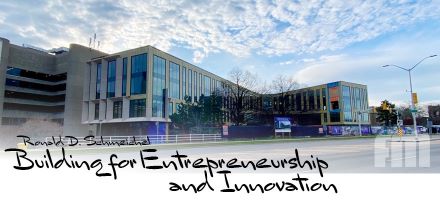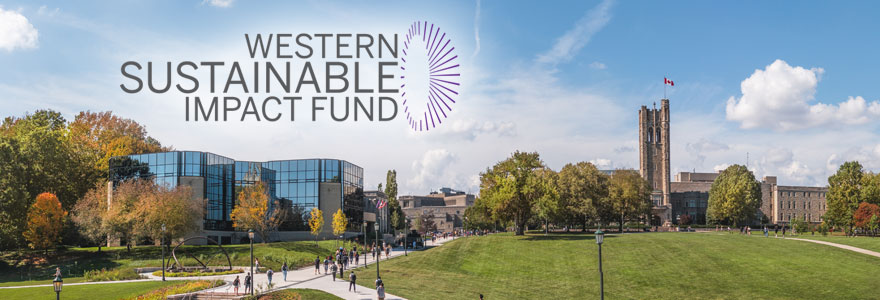SDG 7 - Strategic Initiatives
Outreach: Energy Efficiency 
Western offers several free and paid programs and initiatives focused on energy efficiency and clean energy, benefiting both students and the local community:
- Centre for Building Sustainable Value (BSV): One of the first sustainability centers in a business school globally, BSV focuses on research and teaching related to sustainability. It provides valuable resources for understanding and implementing sustainable practices.
- Ivey Energy Policy and Management Centre: This center conducts research and hosts events on energy policy, management, and sustainability. It provides insights and solutions for energy
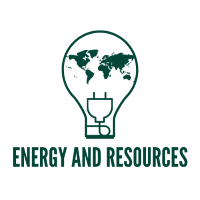 efficiency and clean energy practices. The center also produces the Ergs and Equilibrium podcast, discussing recent developments in energy and environmental economics.
efficiency and clean energy practices. The center also produces the Ergs and Equilibrium podcast, discussing recent developments in energy and environmental economics. - Ivey Energy and Resources Clubs: Ivey’s HBA and MBA student-run clubs provide opportunities for students to actively engage with energy sector companies and leaders.
- Student Energy Guided Project: United by their passion for the environment, this team of Western Students developed a solar project with the aim to make a difference in the local community by promoting renewable energy.
- Sustainable Design in the Richard Ivey Building: The building itself is a model of sustainable design, having achieved LEED® Gold certification. It incorporates green building features such as water-efficient systems, recycled materials, and energy-efficient lighting. The building serves as a practical example of energy efficiency and sustainability for the community.
- Sustainability Initiatives: There are numerous opportunities for students and the local community to get involved in sustainability efforts. These include the Sustainable Workplace Ambassadors Program and other initiatives aimed at promoting sustainable practices on campus and beyond.
These programs and initiatives engage the local community to increase knowledge about the importance of energy efficiency and clean energy.
Energy Services for Industry 
Western provides direct services to local industries aimed at improving energy efficiency and advancing clean energy solutions. These services span research collaborations, consulting, workshops, and real-world testing environments. Some examples include:
- Carbon Solutions: This multidisciplinary research initiative works with industry, government, and communities to develop and implement practical, science-based strategies for reducing greenhouse gas emissions. The team provides tools, data, and expertise to support decision-making around carbon management, clean energy transitions, and climate policy. Partnering for a Greener Future Conference was a free event for researchers and industry leaders.
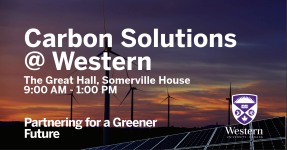
- ConveX Living Lab: The lab supports local industry by offering a real-world testing environment for smart, secure, and energy-efficient technologies. This includes real-world testing, integrating AI-driven fault detection, secure communication, and advanced sensor fusion through partnerships with manufacturers, telecoms, and municipalities.
- Energy Sector Strategic Leadership Accelerator: This program is designed to equip senior leaders in the electricity sector with the tools to lead electrification, clean energy innovation, and infrastructure transformation. It includes scenario planning, stakeholder engagement, and strategic foresight, all of which support energy transition and sustainability goals in industry.
- Ivey Energy Policy and Management Centre: The Centre engages with industry through research, policy advocacy to promote energy efficiency and clean energy initiatives. Ivey hosts many free events like the Annual Electricity Workshop, conferences, roundtables, panels, etc. for scholars, practitioners, and industry to share ideas and research on contemporary issues related to electricity policy, regulation, and electricity markets.
- Research Facilities: Wind engineers at Western have been directly involved in all aspects of wind research and have used their expertise to work with architects, engineers, and developers on more than 1000 projects to solve wind engineering problems all over the world. Major projects include the World Trade Center in New York, the Sears Tower in Chicago, the Confederation Bridge in Prince Edward Island and the CN Tower in Toronto. Research facilities that collaborate with industry include:
- Boundary Layer Wind Tunnel Laboratory: A cutting-edge facility for developing wind tunnel testing and analysis methods and providing planners at the design stage of projects with important solutions to complex wind engineering problems.
- Insurance Research Lab for Better Homes: The first facility in the world to subject full-scale homes to simulated winds up to a category five hurricane in order to make them safer and increasingly cost-effective.
- Wind Engineering, Energy and Environment: The world’s first hexagonal wind tunnel represents a technological breakthrough in the study of wind-related phenomena as it has the capability of physically simulating high intensity wind systems – including tornados, downbursts, gust fronts or low-level nocturnal currents.
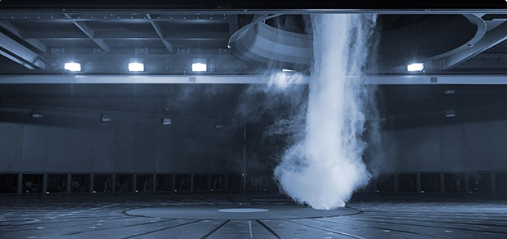
- Advanced Facilities for Avian Research: A specialized centre providing the infrastructure and initiative to facilitate interdisciplinary studies of bird behavior, physiology, and neurobiology.
- Surface Science Western: This facility provides material analysis and consulting services to industries, including nuclear and renewable energy sectors. Many projects offer innovative solutions to transition to green technology such as lithium ore digitization and polystyrene recycling using sunlight-activated nanoparticles. Surface Science Western also offers customized services and personalized workshops, offering a free, no obligation quotation, and initial consultation for all services.
- Western Centre for Climate Change, Sustainable Livelihoods and Health (WeCLISH): This centre takes an interdisciplinary approach, collaborating with researchers, policymakers, NGOs, local communities, industry, and students to address global environmental issues. Their research includes exploring clean energy solutions and sustainable practices. WeCLISH hosts a free monthly Climate Café.
- Western Nuclear Hub: This research hub partners with industry to develop innovative solutions for nuclear energy production and safety. The Hub provides training and resources to support the growth of nuclear expertise in the region, seeking to elevate the entire nuclear sector to meet and surpass global standards in healthcare, environmental sustainability, and technological progress. Western recently partnered with Canadian Nuclear Laboratories to develop intellectual property to provide solutions to national and industry challenges.
Inform and Support Government 
Western actively engages in clean energy and technology policy development, informing and supporting governments.
- Surface Science Western (SSW): This consulting and research laboratory specializes in material and surface analysis to impact processes, products, and policies. Over the past four decades, SSW has worked closely with many of the leading energy and power generation giants in Ontario, particularly from the nuclear industry, including NGOs, as well as private - and government-owned companies.
- London Hydro Board Membership: Western professors hold two positions on the board of London Hydro, providing policy and sustainability insight at the governance level.
- Carbon Solutions: Based on academic and partner collaborations, Carbon Solutions has strong ties to Southwestern Ontario. Projects involve the circular economy to develop sustainable and enhanced life cycle development strategies for products, energy usage, and recycling, while identifying opportunities for policy development, education, and regulatory matters.
- Ivey Energy Policy and Management Centre: The Centre strives to be an independent, informed, and trusted voice on Canadian energy policy matters, in support of a thriving Canadian economy. For example, the Energy Centre shared its analysis with the Ministry of Energy, and this work informed the government’s Fair Hydro plan.
- CleanTech Conference: Partners, industry sectors, and government were brought together with Western’s leading researchers to focus on key priorities and strategies that will further develop clean tech opportunities in sustainable development, bio-industrial innovation, and electrified mobility, supporting innovative Canadian companies. Panelists include government and policymakers.
- Institute for Chemicals and Fuels from Alternative Resources: ICFAR conducts cutting-edge research on alternative fuels, waste management, and sustainable chemical processes, and produces reports and policy briefs that outline the implications of their research findings.
- Ivey Centre for Building Sustainable Value: The Centre’s jurisdictional scan of Canadian circular economy initiatives provides valuable insights for policymakers by identifying best practices and gaps in current approaches. By highlighting how circular economy strategies intersect with clean energy and resource efficiency, the study informs the development of more integrated and sustainable policy frameworks.
- Public Briefing on Governance of Publicly Owned Utilities: This briefing provides research-based recommendations to strengthen the governance of publicly owned utilities. The event supports the development of effective frameworks for clean energy and energy-efficient technology implementation targeted to provincial governments.
- Annual Electricity Workshop: The workshop brings together prominent global scholars, practitioners, and industry to share ideas and research on contemporary issues related to electricity policy, regulation, and markets.
- Canada’s Role in the Future of Nuclear Energy: This conference explores the future of Canada’s nuclear sector, both domestically and internationally. Canada and Ontario are viewed as emerging global leaders in policy, safety, and management of this complex industry.
Sustainable Building and Renovating
Western has a comprehensive framework that aims for all new construction, major renovations, and existing building upgrades meet or exceed energy efficiency standards.
New Construction and Major Renovations
Sustainable Design Guidelines: All new buildings and major renovations aim for a minimum of LEED (Leadership in Energy and Environmental Design) v4 Silver certification. LEED is a third-party framework that verifies the environmental performance of buildings. In addition to LEED, Western’s own guidelines include:
- Energy Modeling: Projects include an energy analysis to compare the proposed design with a baseline, checking for LEED and/or building code compliance.
- Performance Metering: Install permanent sub-meters for energy systems and confirm conformance with Western’s Utility Metering Requirements.
- Performance Requirements: Design projects to optimize energy performance and minimize greenhouse emissions.
Capital Projects: Western undertakes numerous capital projects annually to enhance infrastructure and sustainability. All projects must consult with the Sustainable Design Guidelines. Completed projects that reflect these commitments include:
- Advanced Manufacturing Park: A collaborative research hub, including the WindEEE Dome, Fraunhofer Project Centre, and Advanced Manufacturing Centre, all aiming for LEED Silver certification.
- D.B. Weldon Library Renovation: A transformative retrofit, the project reduced energy use by over 30%, incorporating high-efficiency plumbing and lighting, and sustainable materials like FSC-certified wood. The redesign also supports diverse learning needs and has received international recognition for its sustainability and design excellence.
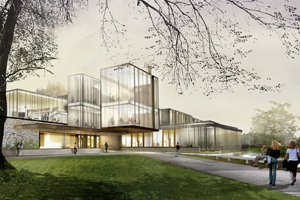
- Delaware Hall Residence: This retrofit included low-flow fixtures, lighting controls and improved thermal performance, resulting in a LEED Silver Certification.
- Richard Ivey School of Business: Designed to LEED Gold standards, the building features a green roof and grey water reuse systems.
- Ronald D. Schmeichel Building for Entrepreneurship & Innovation: Western’s first building to apply for net-zero certification, it is designed to LEED standards and equipped with advanced energy systems.
Environment & Sustainability Policy This policy outlines Western’s commitment to sustainable development, including energy-efficient design and construction practices.
Government Standards: Western aligns with the Ontario Building Code, which includes energy efficiency requirements for all new construction and major renovations. By following these provincial standards, Western ensures that all building projects are designed and constructed to meet benchmarks for energy use, insulation, ventilation, and emissions reduction. This alignment with government regulations reinforces Western’s commitment to building a more energy-efficient and sustainable campus.
The newest completed building, the Ronald D. Schmeichel Building for Entrepreneurship and Innovation, was presented with the New Construction Award in the Green Building Excellence category by the Canada Green Building Council.
Upgrading Existing Buildings
Western is actively and continuously upgrading its existing buildings through the Deep Energy Retrofit Program (DERP)—a cornerstone of our long-term sustainability strategy. DERP targets older buildings for comprehensive  retrofits that typically achieve 60%–80% reductions in emissions per building. Western aims to complete 1–2 DERP projects annually, ensuring that energy efficiency improvements are embedded into the life cycle of every building.
retrofits that typically achieve 60%–80% reductions in emissions per building. Western aims to complete 1–2 DERP projects annually, ensuring that energy efficiency improvements are embedded into the life cycle of every building.
This ongoing effort ensures that energy efficiency improvements are embedded into the life cycle of every building, reinforcing Western’s leadership in sustainable campus operations.
Western currently has 13 LEED-certified buildings and another LEED certification application underway.
Carbon & Energy Reduction
Western has a process for energy and carbon management and reduction. Our commitment to reduce GHG emissions and energy consumption is a large part of the Office of Sustainability portfolio. Their Energy & Carbon page has details on several programs, initiatives, and infrastructure aimed at achieving this.
- Deep Energy Retrofit Program: This program is aimed at renovating older buildings on campus to improve their energy efficiency and reduce emissions.
- Demand Management: This methodology is used to forecast, plan, and manage electrical demand on campus. These efforts and activities protect Western’s infrastructure and resiliency, while also supporting Ontario’s broader electricity system.
- Electric Boilers: Western began a $18.2M project to install electric boilers. The new boilers will supply 40% of campus steam and cut emissions by 20%-30%, which advances Western’s 2030 greenhouse gas reduction goals.
- Energy Conservation and Demand Management (CDM) plan 2024 – 2029: This plan lays out the technical measures needed over the next five years to keep us on track with our goals.
- GHG Emissions: Western is committed to reducing our emissions in line with the International Paris Accords of 2016, and Ontario’s provincial goals:
- By 2030 - reduce greenhouse gas emissions by at least 45%, relative to 2005 levels
- By 2050 - achieve net-zero emissions for campus operations
- Leadership in Energy & Environmental Design: The use of external certification programs, such as LEED, not only helps showcase our commitment to sustainable buildings, but also complies with internationally recognized standards and performance measurements.
- Renewables: Renewable energy generation and procurement will play a significant role in Western’s carbon reduction strategy.
Energy Waste Identification
Western University conducts regular energy reviews to identify areas of highest energy wastage. As part of our Energy Conservation and Demand Management Plan (2024–2029), we systematically review and benchmark energy use across campus facilities. These reviews enable us to pinpoint inefficiencies and prioritize upgrades. For instance, a recent review showed a 16% reduction in overall energy consumption compared to 2018 levels—significantly surpassing our original 3% target. Additionally, targeted building energy assessments help determine which aging facilities are prioritized for upgrades through our Deep Energy Retrofit Program. We continue to analyze energy data to uncover new opportunities for efficiency and sustainability.
Renewable Energy
Western University actively promotes renewable energy and climate action beyond its campus through leadership, public engagement, and strategic initiatives.
Public Engagement & Leadership
Energy Sector Strategic Leadership Accelerator: Preparing senior leaders to manage the shift toward electrification and renewable energy, this course fosters informed decision-making beyond the university.
Ivey Business School’s Net-Zero by 2034 Action Plan: Announced in April 2025, this ambitious plan includes capital upgrades, operational improvements, and behavioral change initiatives. It also emphasizes public accountability and external engagement through a Sustainability Task Force.
Ivey Net-Zero Event Series: Hosted by the Centre for Building Sustainable Value, this series mobilizes research and teaching to support business leaders and policymakers in navigating the net-zero transition. Events and reports are publicly available to guide renewable energy pledges.
Network for Business Sustainability: This network offers free, evidence-based sustainability guidance to a global audience. In 2023–24, it reached over 157,000 new users, helping organizations worldwide make informed choices about renewable energy.
Campus as a Living Lab
Western’s Campus as a Living Lab (CLL) program integrates academic research with campus operations to test and implement sustainability innovations. It brings together faculty, staff, students, community members, and industry partners to collaborate on projects that support biodiversity, land restoration, energy systems, and more. The program leverages Western’s unique location in the Carolinian Life Zone—Canada’s most biodiverse region—and its proximity to the Deshkan Ziibi (Thames River) and Medway Valley Heritage Forest, offering rich opportunities for ecological learning and sustainability leadership.
CLL projects serve as real-world demonstrations of sustainable practices, helping to educate students and inform external partners about scalable solutions in energy, conservation, and environmental design.
Innovation in Renewable Energy
Agrivoltaics & “Solar Sheep”: Dr. Pearce led a groundbreaking study on agrivoltaics, combining solar energy production with sheep grazing. This model increases land productivity, reduces maintenance costs for solar farms, and supports local agriculture. The research shows that sheep grazing under solar panels is not only environmentally sustainable but also economically profitable, offering a scalable solution for Canadian farms.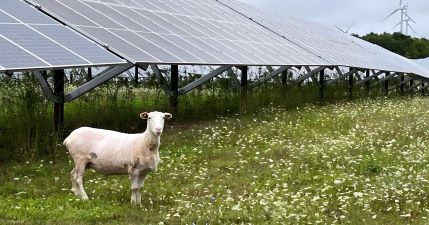
Free Appropriate Sustainability Technology (FAST) Lab: Pearce’s lab develops open-source, solar-powered technologies that are accessible and replicable. One standout project funded by the Western Sustainable Impact Fund is the creation of solar-powered picnic tables made from recycled plastic composites. These tables serve as public charging stations and educational tools, demonstrating how solar can be seamlessly integrated into everyday infrastructure.
Open-Source Innovation: As the John M. Thompson Chair in Information Technology and Innovation, Pearce champions open-source hardware and software for sustainability. His work empowers communities and businesses to adopt renewable technologies without proprietary barriers, accelerating global access to clean energy solutions.
Campus Demonstration Projects
Demand Management Program: This program reduces electricity consumption for cooling, minimizing the need for expanded infrastructure and lowering grid dependency.
Energy & Carbon Strategy: Western has committed to reducing GHG emissions by at least 45% by 2030 (relative to 2005) and achieving net-zero emissions by 2050. The campus energy loop allows buildings to share excess energy, and retrofits through the Deep Energy Retrofit Program (DERP) have achieved 60%–80% GHG reductions per building.
Sustainable Buildings: Western has 13 LEED® certified buildings featuring rooftop solar, green roofs, geothermal systems, and energy-efficient lighting and windows. These serve as public demonstrations of renewable energy integration.
Outreach & Influence
Through its research centers, public events, and sustainability networks, Western influences policy, business, and community leaders to adopt renewable energy and climate action strategies. These efforts reflect a strong institutional commitment to sustainability beyond campus boundaries.
Low Carbon Innovation
Western provides a range of supports for startups that foster and advance low-carbon technologies and sustainable economic models. These include funding, mentorship, research partnerships, and access to entrepreneurial networks.
- Carbon Solutions: This interdisciplinary initiative is currently funding 15 applied research projects that connect Western researchers with industry, government, and community partners to reduce carbon emissions. These projects support innovation in areas such as clean energy, carbon accounting, and sustainable infrastructure—helping startups and early-stage ventures bring climate solutions to market.
- Ivey New Venture Project: As part of the Ivey MBA curriculum, this program allows students to develop and pitch real startup ideas—many of which focus on sustainability and social impact. It encourages entrepreneurial thinking around clean energy and low-carbon innovation.
- Morrissette Accelerator: This 12-week summer program provides selected startups with workspace, mentorship, and funding to accelerate their growth. Ventures focused on sustainability and clean technology are encouraged to apply and benefit from tailored support.
- Morrissette Institute for Entrepreneurship: This institute provides mentorship, education, and funding to student and alumni entrepreneurs. The institute has helped ventures raise over $6.3 million in investment, many of which focus on sustainability and clean technology. Programs like the New Venture Project and Entrepreneurs-in-Residence offer tailored support for startups with a low-carbon mission.
- Western Sustainable Impact Fund: This $1 million fund supports student- and faculty-led projects that align with the sustainability goals outlined in Western’s Strategic Plan. Startups with a focus on clean energy, circular economy, or carbon reduction can apply for funding to scale their impact.
- Western Angels’ Demo Day: Hosted by Morrissette and Ivey, this event connects early-stage startups with a network of alumni investors and mentors. Many of the ventures showcased promote sustainable business models, offering a platform for clean-tech and low-carbon startups to gain visibility and funding.
- Western Sustainable Impact Fund: This $1 million fund supports student- and faculty-led projects that align with the sustainability goals outlined in Western’s Strategic Plan. Startups with a focus on clean energy, circular economy, or carbon reduction can apply for funding to scale their impact. A 2024 project included:
- CO₂-Enhanced Foam Innovation: In collaboration with startup ShivGreen Foam Insulations, this project explored how CO₂ affects carbon dispersion in polystyrene nanocomposite foams, enhancing insulation, recyclability, and use of renewable sources.
Decarbonization Strategy 
Western has a decarbonization strategy for its entire investment portfolio and has committed to achieving net-zero emissions by 2050 or sooner. This strategy includes reviewing investments for alignment with climate goals, including those in carbon-intensive industries such as coal and oil. Western publishes annual reports to ensure transparency and accountability, including detailed metrics and progress toward its climate commitments.
- Policy 2.26: The Statement of Investment Objectives, Policies, and Governance includes a section that extends our net-zero emissions target to encompass all the university’s investment classes and industries. Western’s approach emphasizes responsible investing, focusing on ESG integration, engagement, and thematic investing.
- Principles for Responsible Investment Signatory: Western’s signatory status strengthens our decarbonization strategy by embedding globally recognized responsible investment principles into decision-making. As part of a network representing $128 trillion in assets, we align capital with climate goals, advance ESG integration, and support the worldwide transition to a low-carbon economy.
- Responsible Investing and Decarbonization: Responsible investing is part of Western’s broader commitment to taking action on climate change. Creating a more sustainable future is reflected in our goals to achieve net-zero emissions for campus operations by 2050 or sooner.
- Responsible Investing Annual Report 2024: As of 2023, Western has reduced its Weighted Average Carbon Intensity (WACI) by 35.3% and public equity emissions by 38.6% from its 2020 baseline. It has also achieved its goal of allocating 10% of its Operating & Endowment Fund to sustainable investments.
- Responsible Investing Strategy: Western’s strategy focuses on engagement and reducing the carbon footprint of its investments and increasing allocations to sustainable investment strategies. Divestment will be considered where engagement has failed or is not feasible.
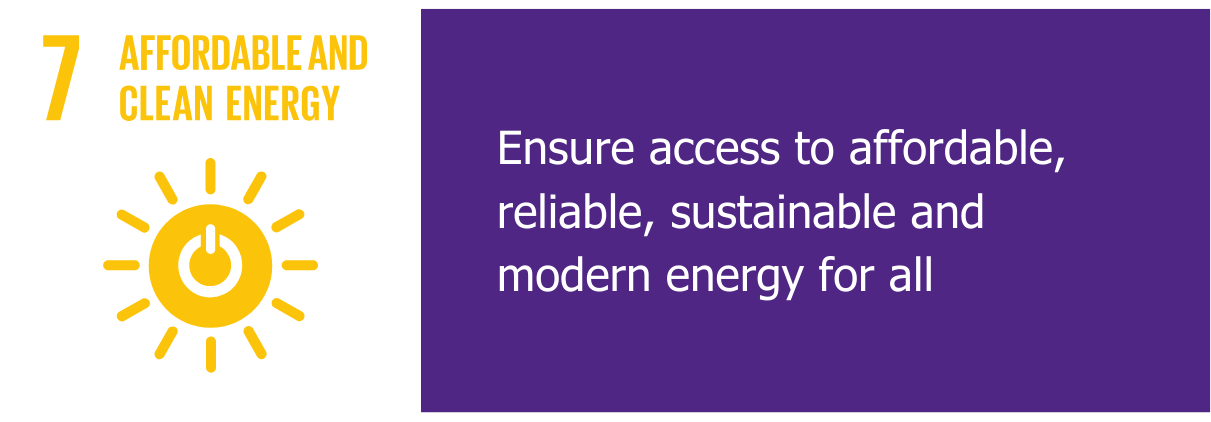
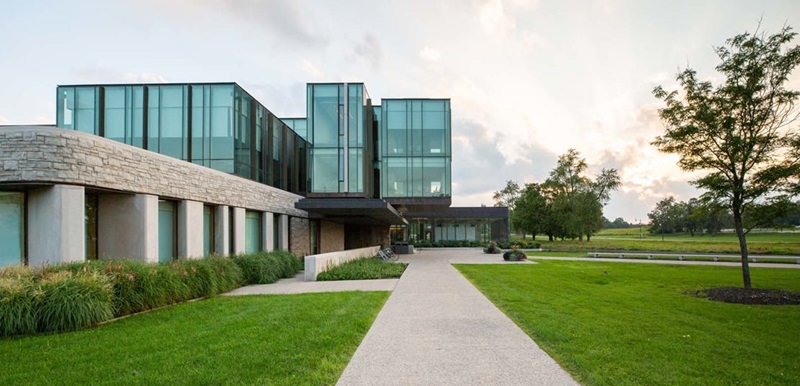 Top of Page
Top of Page